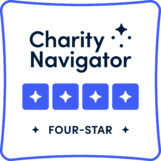
When Theology Meets Entrepreneurship: Interview with New Faculty Member Daniel Bannoura.
As the newest faculty addition to Bethlehem Bible College, Daniel Bannoura serves as one of the developers of the Online Biblical Studies program. His background in science, philosophy and theology now come together in such a way that provides a unique platform to not only minister to his local community here in Palestine, but regionally and even globally. Deemed a “scholar entrepreneur” by those around him, Daniel’s interests in reading, writing and research, coupled with social entrepreneurship, manage to find a way to impact the community in practical ways through his many initiatives.
Keren Kandel (KK): Can you tell our readers a bit about your journey in both academia and your personal walk that has led you to working here at BBC?
Daniel Bannoura (DB): I’ve always been interested in the sciences, which led me to pursue my B.S. in Science and Physics from the University of Florida. Since I was young I’ve had a desire to understand how and why things work the way they do, and I was immensely inspired by people like Isaac Newton, Galileo, and others who expressed so much passion in their desire to understand the universe. To me, understanding these things, figuring out the science of the universe, was an attempt to come to a better understanding of the mind of God, and how he works in Creation. Consequentially, this becomes for the believer an act of worship, as we gain a better and closer understanding of God and formulate a personal and intimate relationship with him.
Following that same interest in science, I suddenly found myself being drawn toward Theology. Often these disciplines, science and theology, can be seen as antagonistic toward one another. Rather, I saw them coming together in discovering Truth, one through physical processes and experimentation, and the other through metaphysical, ethical, and spiritual analysis. This led me to study Theology at the London School of Theology, where I wrote my dissertation on Theodicy, specifically using science to better understand and explain evil and suffering in the world.
And as I was studying the Problem of Evil and Original Sin in the texts and works of Clement of Alexandria and Irenaeus, I began to see the importance of philosophy and its impact on the development of Christian thought. This brought me to pursue a second Masters degree in Medieval Philosophy from the University of Chicago with specific interest given to Islamic studies.
Reading the works of Christian medieval philosophers shed new light on the vibrancy and robust nature of Christianity, bringing to life much of what one sees today as a static or unintellectual faith. The Christians of Palestine and Syria were the ones preserving ancient philosophical texts, and when Arabic became the lingua franca in the region in the 9th and 10th centuries, it was these men that were translating them from Greek and Syriac into Arabic, to be eventually picked up by Muslim philosophers.
This is especially important for me as a Palestinian Christian to see the development, preservation and contribution to philosophy by Christians in the region, as it was then passed on to the Muslims who in turn passed it to the Europeans. It shows that instead of Christianity being a religion categorized as stagnant and closed off to ideas, it is a persuasive religion that draws on these philosophical ideas that reveal the vivacity of Christianity.
Further, it emphasizes that as a part of a small religious minority, often seen and perceived as weak, that we have played a major role in culture, society and even the formation of Christianity and that’s huge for us. It is this same sentiment that I carry with me in my endeavors here at the College. I hope to continue in the tradition of employing these ideas of philosophy and theology to enhance the society in which we live.
KK: You recently presented a paper titled, “Arab Nationalism Among Christian Palestinians in Early Mandate Palestine (1920-1930)” at Leiden University in Leiden, and even more recently, your paper on Ibn al-Tayyib’s Commentary on Genesis One was accepted at the 10th Congress of Arabic Christian Studies in Rome. What do you hope to accomplish in your work?
DB: My writing spans across several disciplines including Islamic theology, Muslim-Christian Relations and Medieval Christian Philosophy. Like I said before, the motivation for an academic work is to discover truth. It is important because we want to know how and why things happened. In the works that you mentioned, I hope to convey that Christianity is more compelling and fascinating than what we see being manifested today. There is significance in understanding that Christianity and these ideas are not something foreign, but rather originated in this land. My hope is that Christians here will begin to regain and re-own that which came from our own history. Additionally, I hope that my work can be an encouragement to those that are asking difficult questions by means providing some answers as well as providing a platform for open conversations about these kinds of topics.
KK: What are some of your passions, and how does that play out in your community?
DB: By nature, I’m a very curious person, which lends itself to being helpful in the various initiatives that I’ve started over the past few years since returning from the States. I feel as though I have a responsibility as a Palestinian Christian, with the opportunities I’ve been given, to utilize these giftings to better understand how to love my neighbor and help my local community. More specifically, my passion to engage the community around me came as a reaction to the elitism I was seeing in academia in the West. I saw the academic community as being esoteric and privileged, and removed from the poor and marginalized. I didn’t see this aligning with the person of Jesus and his teachings, so upon my return to Palestine this became my motivation for several initiatives that have now gained traction over the past two years. I felt as though I could, on a practical level, implement ideas from my studies into initiatives that would serve the community.
My initial endeavor was to create a “third space” for learning. In Palestinian culture, often learning and education is seen as a means to an end, rather than something to engage in for the richness of learning and knowledge itself. The idea was that this space would serve as a place for gathering, but also provide room for further study by making available language classes, book clubs, a library and several other initiatives. Out of this desire, I started an educational coffeeshop in the spring of 2014 that encompasses a study area, library, a music room, and a garden. All of these functions serve a purpose in presenting a space that encourages learning outside of traditional education in Palestine.
Further, in taking matters of creation more seriously, I teamed up with a few other locals who have a passion for the environment, and we started Tadwir, a recycling initiative. We have been collecting glass from the streets as well as local establishments to repurpose them into items like beautiful glass countertops to colorful artisan work. Our hope is to help foster a mentality that the places and the space in which we live are ours to manage and take care of.
Lastly, the past year has shown promise in our up and coming club for Frisbee called Ultimate Palestine. I’ve helped to coach youth from the community in hopes of not only being able to compete at higher levels in the region, but also to encourage good values with the local youth, like conflict resolution and character building.
Through all of these, I hope to see change in my own community. I want to be faithful in serving those around me with the gifts and opportunities God has given me.
KK: What is your current role here at BBC?
DB: I work alongside Tony Deik in developing and facilitating the Online Biblical Studies Diploma program. I am tasked with writing course material in Church History, New Testament, and Islam. I will be doing some teaching in these courses, continue to develop the program, as well as tutor and keep up with our students.
KK: What is your hope in facilitating this Online Biblical Studies program?
DB: It’s a huge blessing that this is happening and that we get to be a part of it. It has opened the door for the College to move beyond the Palestinian context and become a global initiative. We now have students accepted to our program from Hong Kong to Canada, Yemen to Germany. This is an amazing opportunity for the Church! We are in touch with recent converts, refugees, church leaders and missionaries all over the world. The commission of BBC has expanded far beyond what we had expected.
This is exciting, but also comes with great responsibility. As developers and facilitators, Tony and I are grateful for the opportunity to serve in this capacity to serve those not only here, but literally around the world. We feel the sense of urgency and seriousness in what God has given us to be stewards of. We hope to be faithful in our roles and bring glory to God. We are catching a glimpse of God’s universality, his love for his world and his Church that is widespread.
KK: What is the main emphasis you want to impart to the students in this program?
DB: It’s a Biblical Studies program, so whether it’s a refugee or a convert, our interest is to help empower and strengthen the Church to dig deep in the scriptures and be transformed by them. We hope to garner a holistic approach to the program by focusing on how to gain knowledge from the scriptures, but then take what is being taught and transform them into skills that can be readily applied to their lives and ministry. Further, as an extension of these two ideas, the head and hand, we hope to draw closer to the heart of God as we cultivate an intimate relationship with him.
KK: How do you see the Online Biblical Studies Program affecting the region?
DB: Hopefully it provides refugees and those within predominately Muslim societies to be able to study the Bible in their own context by the click of a button. We are really expanding and reaching places we had never thought we would. Our desire is to see a thriving church in the Middle East. We want the Arab church to be a learned, flourishing church that is able to address the needs and challenges of today’s society. I am blessed to be a part of this ongoing work.
Amira is the Communications Coordinator of Bethlehem Bible College. She is a committed Palestinian Christian who has a passion for writing about the intersection of faith and seeking justice for her fellow countrymen. To read more of her writings sign up for Bethlehem Bible College’s monthly newsletter.

